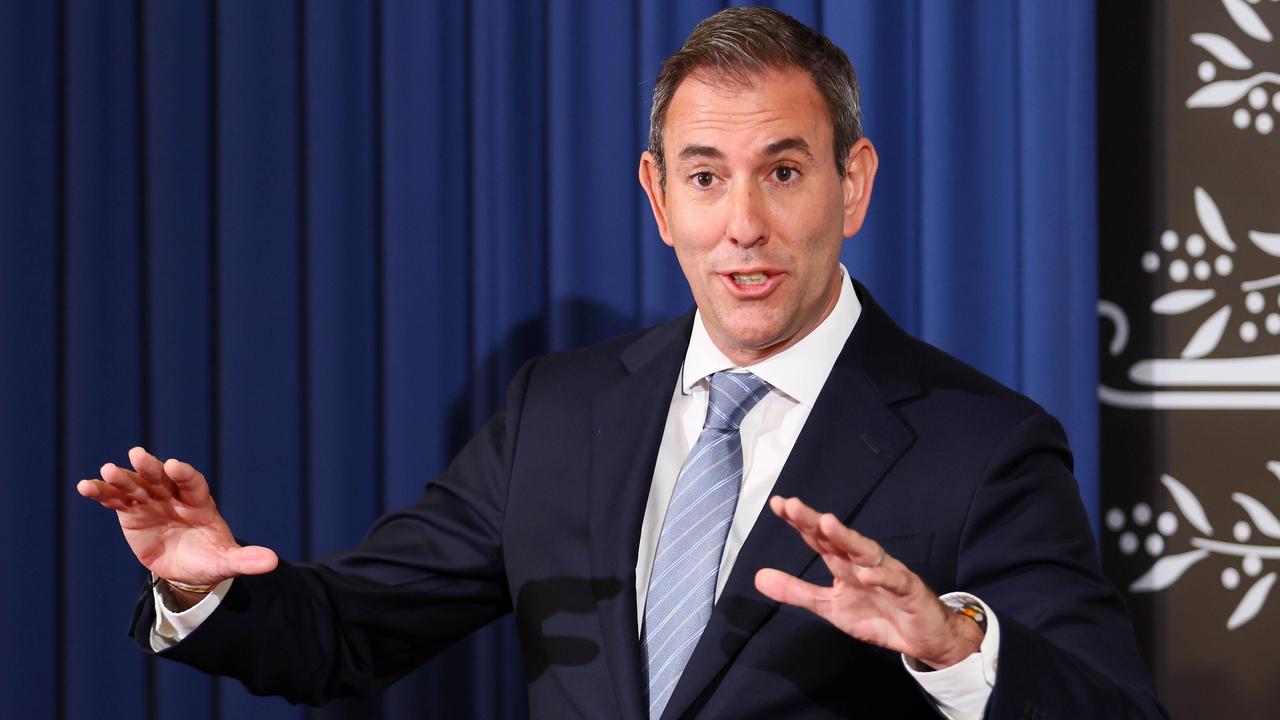Federal Budget: $648m mental health boost, NDIS costs set to explode
Suicide prevention services and mental health support for kids form a key part of the federal budget. Meanwhile, the cost of the NDIS is set to balloon despite spending being slashed.
Federal Budget
Don't miss out on the headlines from Federal Budget. Followed categories will be added to My News.
Suicide prevention initiatives, programs to manage the mental health of schoolchildren, and money to bolster the mental health workforce are part of a $648m strategy in the budget.
A new $9.7m program will measure students’ wellbeing, set national guidelines for accrediting school-based mental health programs and fund teachers’ professional development.
At-risk Year 8 students will get access to a new best-practice early intervention and prevention mentoring program to improve their mental health at public high schools.
Parents will be given help identifying the signs of social and emotional problems in children through a $1.8m mental health app.
Health Minister Greg Hunt’s electorate in the Mornington Peninsula will benefit from $1.6m in funding for youth mental health services.
The government will spend $46.7m on suicide prevention measures including setting up systems in 31 communities so they have the tools to identify and respond to problems, install a suicide prevention leader in each of these communities and fund research into prevention.

The budget pays for a previously announced $206m expansion of the Early Psychosis Youth Service provided by Headspace.
There is also $24m for treating eating disorders and nearly $90m for multidisciplinary care for victims of domestic and sexual violence.
More than $41m is available to provide mental health treatment for Australians affected by natural disasters such as floods and bushfires, and other tragic events.
Children and adults are facing waiting times of more than six months to see a psychiatrist as the nation’s mental health workforce is stretched in the aftermath of Covid lockdowns and their ongoing effects.
The budget provides $89.2m to bolster the mental health workforce, including funding 30 additional mental health specialist training posts, a free national support line for GPs to access clinical advice from psychiatrists and $18.3m to better use the existing workforce.
Mr Hunt said the initiatives in the 2022 budget built on the government’s existing $2.3bn Mental Health and Suicide Prevention plan: “The total investment has grown to nearly $3bn.”

NDIS ‘FULLY FUNDED’
The cost of the NDIS will balloon by 9.6 per cent in the next four years even as the National Disability Insurance Agency slashes the amount it is paying participants in the scheme.
More than 502,000 people with a disability now benefit from the scheme which is expected to cost $35.7 billion next financial year and grow to cost $46 billion by 2025-26.
“In this budget, NDIS funding grows in every year. Under the Coalition, the NDIS will always be fully funded,” Treasurer Josh Frydenberg said.
While overall funding is increasing the budget says it is because more people are entering the scheme rather than because those already in it have more money.
The latest quarterly report from the NDIS shows the average plan size per participant actually fell by 4 per cent between 2020 and 2021 from $71,200 to $68,500.
Disability rights group People with a Disability Australia has said half its 56,000 members have had their funding cut in recent months.
Nearly 4000 participants are fighting changes to their plans through the Administrative Appeals Tribunal.
While many participants now have smaller funding they are facing an increase in costs from the middle of the year when a new price guide will require disability service workers to be paid for a shift that is at least two hours long, instead of the existing one hour.
This means they will get less care for their money.
More Coverage
Originally published as Federal Budget: $648m mental health boost, NDIS costs set to explode





